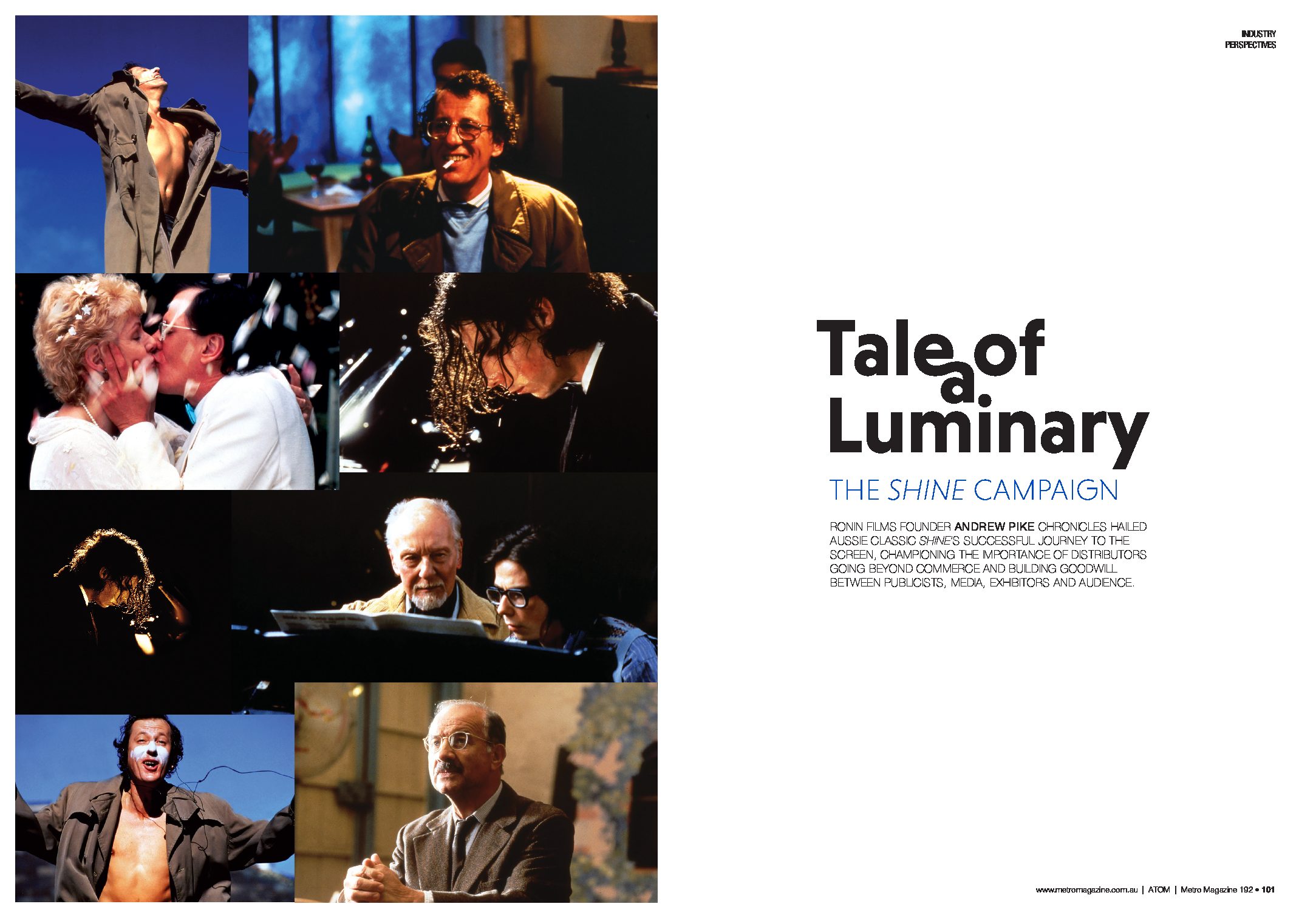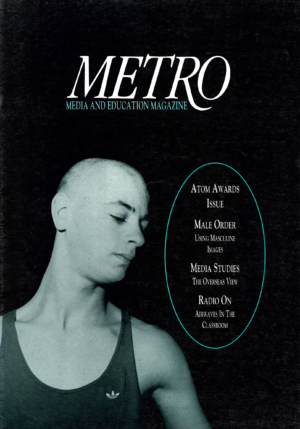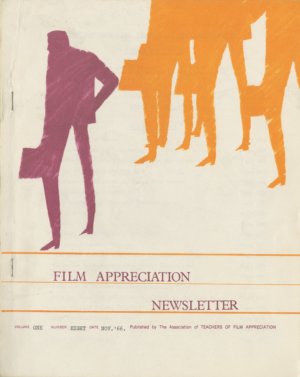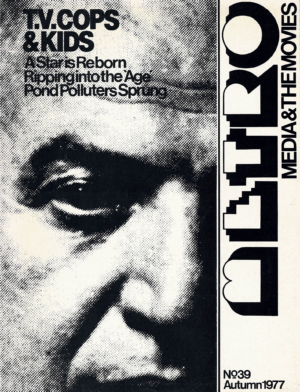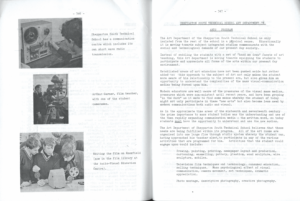The education market for films is traditionally not the place for gala openings, red carpets, glitz and champagne. It’s a market that focuses on function, content and access, not media hype, and it often operates below the radar of the mainstream industry. It’s often ignored when industry reviews or assessments are undertaken, or when marketing workshops are conducted by government agencies. In some countries, it is not even recognised as a market at all, but rather lumped in broadly with ‘non-theatrical’ or home entertainment.
ATOM – in all of its activities, including the publication of Metro and its antecedent journal, Film Appreciation Newsletter – has fought valiantly to encourage and facilitate the informed and appropriate use of films in educational contexts (at all levels) and in scholarly research. The ATOM Awards are almost quixotic in their brilliant effort to stand side-by-side with mainstream industry celebrations, and one can only applaud the courage and vision of ATOM’s leadership in doing the work it has done for so long.
Metro has, from its very beginning, been an integral part of ATOM’s mission and its achievements. The journal has been vital in consistently and steadfastly building greater awareness in the education sector of what the mainstream industry offers, but from a different, scholarly perspective. Metro’s voice has always been refreshingly independent and often unpredictable in its approach, frequently emphasising aspects of the production industry that the mainstream itself overlooks. Metro has given a platform for new approaches to well-known films and, even more importantly, has championed the work of fresh new voices in the production sector, with interviews and critical essays investigating the work of emerging independent filmmakers.
Through the quality of its work, and the perspectives it promotes, Metro has become a vital bridge between the screen industries’ education-focused sectors and the more generalist areas of the production industry.
Today, most of a producer’s revenue to be earned from the education sector comes from Screenrights and the cluster of off-air copying agencies such as EnhanceTV. Some producers, in Ronin’s experience, don’t even know about Screenrights’ existence, let alone understand how it works. Others may welcome their periodic royalty payments, but see Screenrights essentially as an extension of a TV sale. It is, in fact, much more than that: it is a creature of the education domain, and those people who understand it and choose to work with ATOM’s resources, including the scholarly and critical input of Metro, can enhance the chance of a greater result. It’s a great example of the education market operating by its own subterranean practices, unknown and mysterious to many in the mainstream industry, but delivering a significant financial benefit to producers.
Ronin has been active in the film industry since 1974, and the education market has served us well throughout, with delivery formats ranging initially from 16mm film prints and VHS tapes, to DVD, streaming and downloading platforms, and, now, Screenrights. For as long as I can remember, ATOM, its study guides and its publications, especially Metro and later Screen Education, have been an essential part of our work, historically and in the present day. We could not have done what we have done, nor survived as long, without ATOM’s stimulus and connectivity with the education sector – much of it in every issue of Metro. So bravo, Metro, for achieving the landmark of 200 issues!
